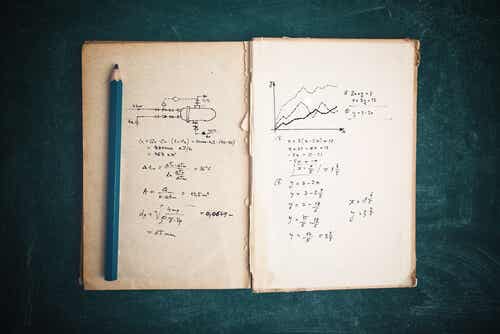Sophie Germain might just be the most influential female intellectual in the history of France. She was a math prodigy even though few acknowledged it during her life. In fact, it wasn’t until after she died that institutions began to award her the recognition she deserved.
Germain’s keen intelligence isn’t the most interesting part about her, though. It’s the strength of her character. This is because she stood up against all the conventions of her time and used the tools at her disposal to do what she loved most: mathematical research.
She basically had no personal life, so she never married and had no children. She had no hobbies other than her affinity for numbers. As you can imagine, she made exceptional contributions to the fields of physics and mathematics.
The world owes her many important contributions to number theory, as well as to the solution of Fermat’s Equation and the theory of elasticity.
“Algebra is nothing more than geometry, in words; geometry is nothing more than algebra, in pictures.”
-Sophie Germain-
A stubborn child
Sophie Germain was born on April 1, 1776, in France, to a bourgeois family with enough opportunities to appreciate science and culture.
She was just a young girl when the French Revolution broke out. The social upheaval led to her parents’ decision to keep her inside the house where she had no chances of going out. There was a big library in her home that she began to browse.
She read Jean-Baptiste Montucla’s Histoire des Mathdmatiques at the age of 13. The episode that spoke of Archimedes and his deep concentration on mathematical subjects fascinated her. It made her want to experience that abstraction from the world, focused on an intellectual matter. Thus, she proceeded with Étienne Bezout’s Elements of Arithmetics.
Sophie’s family tried to discourage her penchant for books when they discovered it. They went as far as to try to eradicate this habit, which they considered undesirable. Furthermore, they removed her light and heater in order to persuade her to give up these studies. It only made her even more obsessed with the subject. Moreover, she wanted to read Newton and Euler, so she had to learn Greek and Latin on her own.
An enriching correspondence
Sophie Germain was a brilliant self-taught person. By the age of 18, she already had access to some class notes from Professor Joseph-Louis Lagrange, who taught at the École Polytechnique in Paris. It was a delight she wasn’t going to miss. Thus, she made a reckless decision after studying the notes: to communicate with the professor.
She knew he wouldn’t take her seriously as a woman. This is why she took advantage of the absence of an old student of Professor Lagrange and wrote to him using the name of Monsieur Antoine-August LeBlanc. This way, a fruitful exchange of correspondence began.
The academic was impressed by “Antoine-August’s” knowledge and decided to invite “him” for an interview. Sophie Germain had doubts but, in the end, she decided to reveal her identity to him. The professor was so interested in her approach that he ignored the fact that she was a woman. Not only that, but he actually became her mentor.

Gauss and the memory of Archimedes
Later, Sophie Germain had access to the work of Carl Gauss. She was impressed and, once again, resorted to the ingenious trick of posing as a man to correspond with the mathematician. Gauss was impressed with her as well and responded to her messages with great enthusiasm.
By then, the Napoleonic invasion of Prussia was on the rise. Thus, Sophie feared Gauss wouldn’t come out of the military service he had to do for the country where he lived.
This is why she spoke to one of Napoleon’s generals, who was a friend of her family and begged him to protect Gauss. The general did and Gauss couldn’t believe it. Especially because he had never heard of the lady who so zealously protected him.
Of course, Germain had to explain her reasons to him and it only impressed him further. So much so that, a few years later, he proposed that she received an honorary doctorate at the University of Göttingen. His proposal was rejected, though.
Nevertheless, Sophie made her own way and won the competition for the French Académie des Sciences in 1816. She was the first woman to be a part of that institution. Thus, she began to emerge as the talented mathematician she was.
Death took her by surprise in 1831 and institutions finally recognized her work sometime later. There’s now a street in France and an annual prize in science named after her.
The post Sophie Germain, a Biography of a Prodigy appeared first on Exploring your mind.













Comments